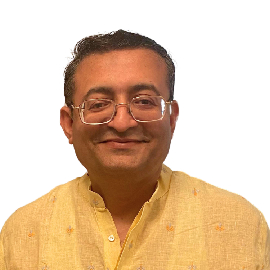What is PTSD?
Post-Traumatic Stress Disorder (PTSD) is a psychiatric disorder that may occur in people who have experienced or witnessed a traumatic event such as a natural disaster, a severe accident, a terrorist act, war/combat, rape, or other violent personal assault.
What are the symptoms of PTSD?
Symptoms of PTSD include persistent intrusive thoughts and distressing dreams about the traumatic event, triggered emotional responses, efforts to avoid reminders of the trauma, alterations in thoughts and mood, and changes in reactivity and arousal.
Can PTSD be cured?
While PTSD can be a chronic condition, effective treatments are available that can lead to symptom reduction or even elimination. Therapy, medication, and lifestyle changes can help manage symptoms and significantly improve quality of life.
How does therapy help with PTSD?
Therapy, particularly cognitive-behavioral therapy, helps individuals with PTSD reframe negative thinking about the trauma, work through feelings of guilt, fear, and shame, and gradually decrease the power that the memory of the trauma has over their lives.
What role does medication play in treating PTSD?
Medications, especially SSRIs and SNRIs, are commonly used to treat PTSD. They can help reduce symptoms such as anxiety, depression, and insomnia associated with PTSD.
How important is family support in treating PTSD?
Family support is crucial in the treatment of PTSD. It can provide a stable environment, help the person feel understood and less isolated, and assist in the day-to-day management of symptoms.
Can lifestyle modifications aid PTSD recovery?
Yes, lifestyle changes such as regular exercise, a healthy diet, good sleep hygiene, and mindfulness practices can help manage PTSD symptoms by improving overall physical and mental health.
What therapies are recommended for PTSD aside from medication?
Apart from medication, therapies like EMDR (Eye Movement Desensitization and Reprocessing), trauma-focused cognitive-behavioural therapy, and group therapy are highly recommended for treating PTSD.
Is PTSD only related to combat or war experiences?
No, PTSD can result from any traumatic event, including sexual assault, accidents, natural disasters, or the sudden death of a loved one. Anyone who experiences or witnesses a life-threatening event can develop PTSD.
Can children and teens develop PTSD?
Yes, children and teens can develop PTSD. They might exhibit symptoms differently than adults, often seeming disoriented or agitated without clear explanation. Early intervention is crucial.
How does PTSD affect daily life?
PTSD can make daily functioning challenging by causing feelings of intense fear, helplessness, or horror. It can affect the ability to work, attend school, or maintain relationships.
Can PTSD lead to other mental health issues?
Yes, PTSD can lead to secondary problems such as depression, anxiety, and substance abuse as individuals attempt to self-medicate or cope with the trauma.
How do alternative treatments like Reiki or guided meditation help with PTSD?
Reiki and guided meditation can help individuals with PTSD by promoting relaxation and reducing stress and anxiety. These practices can help regulate emotional responses and improve overall mental health.
Is it necessary to undergo professional treatment for PTSD?
Professional treatment is highly recommended for PTSD, as it can be complex to manage without expert help. Therapists can provide safe strategies for addressing the trauma.
What dietary changes can support PTSD recovery?
A diet rich in omega-3 fatty acids, whole grains, and leafy greens can support brain health and help regulate mood. Reducing caffeine and sugar intake can also help minimize anxiety symptoms.
Can PTSD symptoms reoccur after treatment?
PTSD symptoms can reoccur, especially in response to new life stresses or reminders of the original trauma. Ongoing therapy may be necessary to manage these flare-ups.
What are the risks of untreated PTSD?
Untreated PTSD can lead to severe emotional, physical, and social consequences, including chronic pain, severe insomnia, eating disorders, addiction, and an increased risk of suicide. Early treatment is crucial to prevent these outcomes.
Can EFT (Emotion-Focused Therapy) be effective for PTSD?
EFT is designed to address the emotional aspects of disorders like PTSD. It helps individuals understand and change their emotional responses, which can be particularly effective in treating PTSD.
How effective is hypnotherapy in treating PTSD?
Hypnotherapy can be beneficial for treating PTSD by helping individuals change negative thought patterns and reduce stress, which are often contributing factors to the condition.
What dietary adjustments are recommended for managing PTSD?
A diet rich in fruits, vegetables, whole grains, and omega-3 fatty acids can help manage PTSD. Avoiding alcohol, caffeine, and sugar-laden foods is also beneficial, as these can exacerbate symptoms.






